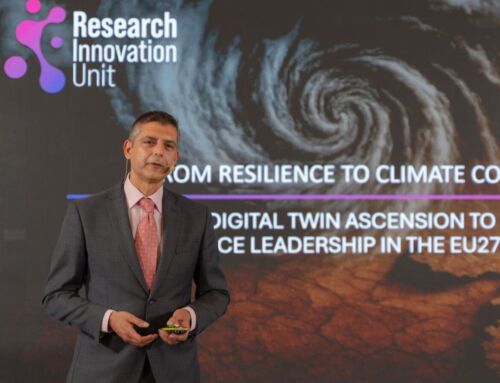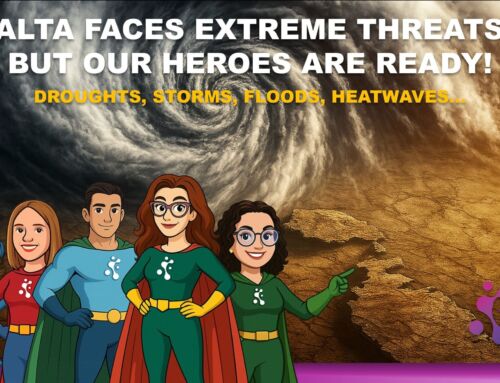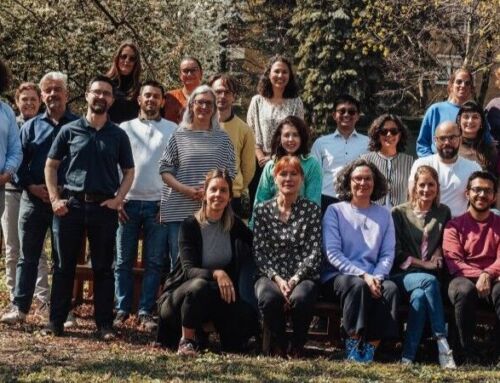A Call for Urgent and Ethical Action to Mitigate Heat-Related Mortality
As the world confronts the mounting challenges of climate change, Malta faces a uniquely perilous situation. Projections indicate that under a 4°C warming scenario, Malta’s heat-related death rate could be 376.45% higher than the EU27 average. While the EU27 is projected to experience an average of 42.82 heat-related deaths per 100,000 people, Malta’s rate is expected to reach 204 deaths per 100,000 people. This stark statistic underscores the need for urgent and inclusive climate adaptation strategies that protect the most vulnerable while ensuring ethical approaches to policy making.
This article explores the reasons behind Malta’s higher vulnerability, highlights the critical work of the Research Innovation Unit (RIU) in reducing the Urban Heat Island (UHI) effect, and provides a pathway for ethical and inclusive solutions to mitigate the projected heat-related death rate.
The Heat-Related Mortality Crisis in Malta
The findings from recent studies highlight Malta’s extreme susceptibility to rising temperatures, particularly as global warming scenarios intensify. Malta’s higher heat-related death rate can be attributed to several key factors, including its geographic location, population density, and the exacerbating effects of urbanization.
Why is Malta More Vulnerable?
Several factors contribute to Malta’s heightened vulnerability to heat-related deaths:
- Geographic Location: Malta’s southern Mediterranean location exposes it to higher temperatures and more prolonged heatwaves than northern European countries.
- Urban Heat Island (UHI) Effect: Malta’s densely packed urban areas retain more heat, making cities with higher Urban Heat Island index especially prone to extreme temperature spikes.
- Ageing Population: Malta’s population is aging, and elderly individuals are more vulnerable to heat-related illnesses and deaths due to underlying health conditions and reduced physical resilience.
- Thermal Injustice: While public establishments such as shopping malls are cooled with air conditioning, residents, particularly from low-income backgrounds, cannot afford air conditioning at home or the electricity required to run it. This creates thermal injustice, where those who lack access to cooling are disproportionately at risk of suffering from heat-related health issues.
These challenges demand urgent attention, but any response must be ethically sound and inclusive, ensuring that no group is unfairly targeted or disadvantaged by climate policies.
The Role of the Research Innovation Unit (RIU)
The Research Innovation Unit (RIU) has been at the forefront of Malta’s efforts to address climate change and the UHI effect. RIU’s work focuses on innovative, evidence-based strategies to reduce heat-related mortality and build climate resilience, particularly through nature-based solutions (NBS).
Nature-Based Solutions (NBS)
NBS are central to the RIU’s approach, integrating natural systems into urban environments to provide cooling, reduce heat retention, and improve the overall livability of cities. Some of the key NBS initiatives being implemented include:
- Urban Green Spaces: The RIU is promoting the creation of more parks, gardens, and green roofs in Malta’s cities. These green spaces not only offer cooler areas for residents to enjoy but also reduce heat retention in buildings and streets.
- Tree-Planting Campaigns: Trees play a vital role in cooling urban environments through shade and evapotranspiration. The RIU’s tree-planting initiatives aim to increase canopy cover in cities, cooling neighborhoods and reducing the demand for energy-intensive air conditioning.
- Green Walls and Roofs: The introduction of green walls and roofs in buildings helps absorb less heat, reduces urban temperatures, and enhances biodiversity in cities.
Alternative and Ethical Solutions
In response to Malta’s growing climate vulnerabilities, it is important to adopt inclusive and ethical solutions that address the root causes of heat-related mortality without disproportionately affecting specific groups. Instead, policies should focus on inclusive measures that protect all residents from the dangers of extreme heat. Here are some ethical alternatives:
- Improving Housing and Infrastructure: Energy-efficient housing and better insulation can reduce indoor temperatures and lower the reliance on air conditioning. Investment in solar shading and natural ventilation systems would improve living conditions and reduce heat exposure for all residents, regardless of nationality or economic status.
- Affordable Access to Cooling: Given the issue of thermal injustice, it is essential to ensure that low-income families, particularly those without access to air conditioning, are provided with financial support or subsidies for energy-efficient cooling systems. This could include subsidies for AC units or rebates on electricity bills during extreme heat events. This approach ensures that everyone can access cooling during dangerous heatwaves, mitigating the disparity between wealthier, middle-class, and more vulnerable populations.
- Expanding Nature-Based Solutions (NBS): By further integrating green spaces, trees, and green infrastructure into urban planning, local government can effectively reduce the UHI effect, making cities more comfortable during the summer months. Nature-based solutions should be expanded not only in public spaces but also in residential areas, where they can help cool neighborhoods and provide natural shading for homes.
- Public Awareness and Engagement: Educating the public about the risks of heatwaves and the actions they can take to protect themselves is crucial. Public health campaigns should focus on reaching vulnerable populations, including the elderly and low-income families, to ensure they are aware of how to reduce heat exposure during extreme weather events.
Challenges and Recommendations
Although Malta has made significant progress through the work of the Research Innovation Unit, several challenges remain. To further reduce the heat-related mortality rate, proper master planning and the integration of ethical climate policies are essential. Moreover, Malta’s response must align with both UN Sustainable Development Goals (SDGs) and EU law, ensuring that the country adheres to international standards for sustainable and inclusive development.
Master Planning for Resilience
Strategic urban planning is necessary to maximize the impact of green infrastructure in Malta’s densely populated cities. By prioritizing sustainable development, Malta can reduce the UHI effect and make cities more livable despite increasing temperatures.
Alignment with UN SDGs and EU Law
Malta’s climate resilience efforts should be closely aligned with the UN SDG 11 (Sustainable Cities and Communities), which emphasizes the need for safe, inclusive, and resilient urban development. Additionally, EU climate laws, including the European Green Deal, offer frameworks for reducing greenhouse gas emissions and implementing climate adaptation measures that protect public health. By adhering to these international frameworks, Malta can ensure that its policies are both ethically sound and effective in reducing heat-related mortality.
A Call for Ethical and Inclusive Action
The projection that Malta will experience a 376.45% higher heat-related death rate than the EU27 average is a stark reminder of the urgent need for action. While Research Innovation Unit initiatives have made strides in reducing the UHI effect and promoting nature-based solutions, further efforts must be made to ensure that Malta’s response to climate change is both inclusive and ethical. By focusing on affordable cooling, sustainable urban planning, and public engagement, Malta can build a future where all residents, regardless of their background, are protected from the dangers of extreme heat.
It is clear that climate change poses serious risks to Malta’s population. The country must continue to invest in innovative solutions that reduce heat-related mortality, particularly for vulnerable groups. Through collaboration with local communities, government agencies, and international organizations, Malta can develop a resilient and inclusive response to the growing threat of extreme heat.
For more information about RIU’s initiatives and ongoing projects, visit Research Innovation Unit – Government of Malta.
References:
- The Lancet Public Health, “Projected median cold-related and heat-related deaths in Europe under present climate conditions (1991–2020) and under four different warming scenarios.” 2024.
- Research Innovation Unit (RIU), https://riu.gov.mt.
- Copernicus Climate Change Service, Climate Data and Projections, 2024.






